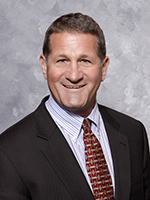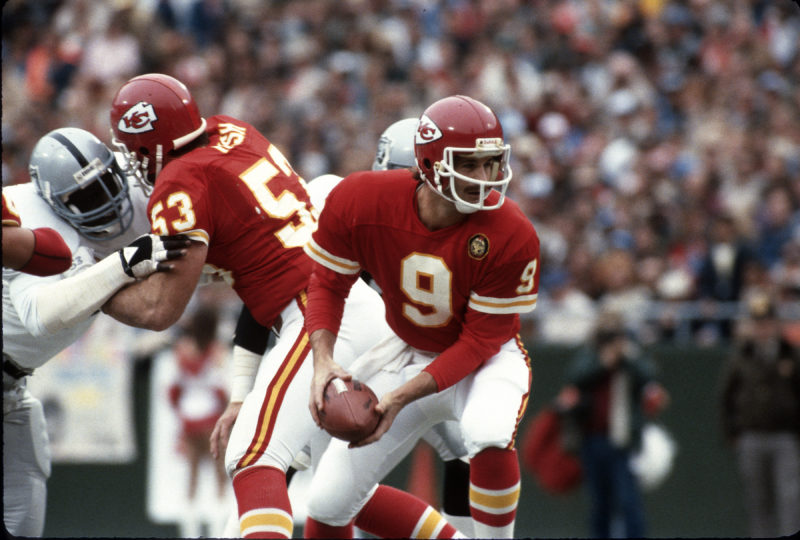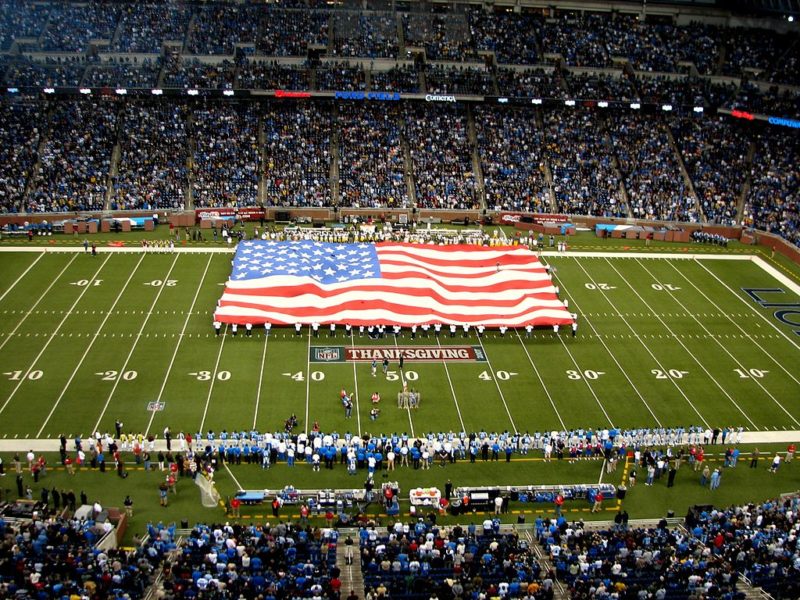Commissioner Kenney concerned protesters are losing message to divisive politics
JEFFERSON CITY, Mo. – As the national debate over the issue of protest vs. respect for the National Anthem continues across the U.S., all eyes still remain on the National Football League, where the issue has come into the spotlight as several players have protested the treatment of black people by police by kneeling during the National Anthem.
The move has been heavily criticized by many, including President Donald Trump, who has called for team owners to fire or suspend the players taking the knee. And it’s a sentiment shared by many Americans, who have refused to watch NFL games and boycott the league.
But a number of players and professionals criticized the President for his remarks, including NBA star LeBron James, who called Trump a “bum” and NFL Commissioner Roger Goodell, who called the remarks “divisive.” Still, others contend that it’s the right of the players to exercise their free speech, people who are attempting to make a difference and start a conversation.

To that end, the Missouri Times reached out to a player in Missouri’s political realm, who also spent time as a player in the NFL: former Chiefs quarterback and current Missouri Public Service Commissioner Bill Kenney.
Kenney says his concern with the movement is that it has gotten away from its original intent. He says it seems that rather than serving as a way to highlight an issue of social injustice, it seems to have involved into some sort of attempt to stick it to the President. And for that simple reason, he calls it divisive on both sides.
“I see this a lot of different ways. I find it very impressive that a young black American who is making a lot of money – like in the NFL, a minimum of $500,000, so the average is $1.3 million or something – a young black American who is willing to stand up against injustice that he sees. And I think that’s a very noble thing,” he said. “But I don’t think that’s what is taking place anymore. And I think the narrative has just gotten lost. What is it now? Stand up against President Donald Trump? That’s what it seems like to me.
“If a young black man wants to protest against the injustices against what is going on against his people, then that’s noble because he can be their voice. But he can speak up for people whose voices aren’t being heard, people that no one seems to care about. “
Things have changed a lot since Kenney’s time in the NFL, and he’ll be the first to tell you that. Not only has the game changed in ways, but so have the salaries, audience, and the world it exists in.
“It’s a unique situation where you have the players and the owners who have a partnership. Players like to say there’s no game without us, but there’s no game without stadiums, so there’s about a 50-50 split in the revenue.”
To him, the whole thing started with Colin Kaepernick, the former quarterback of the San Francisco 49ers.
“When he decided to kneel before the National Anthem, which, by the way, kneeling is a very submissive gesture, and said ‘I’m going to kneel because of social injustice,’ that’s pretty noble,” Kenney said. “But what is not noble is when you go to practice the next day and you depict police officers as pigs on your socks. That’s pretty cowardly. It’s not noble when you go after a game in Miami, Florida, a place with a huge Cuban-American population, and wear a T-shirt with Fidel Castro and then espouse the good qualities of a brutal dictator who murdered people,” Kenney said.
And to Kenney, something like that hits hard. The former state senator has been to Cuba twice in his lifetime on humanitarian trips, where he said they took money and goods to those in need.
“We took money to the orphanages, which are run by the nuns and have no help. There are little babies there, and adults that are in wheelchairs… and you go around and see things like an engineer who makes $15 a month. You walk into the pharmacy, there’s not a thing on the shelves,” he said. “So, when he [Kaepernick] was in Florida, you’re dealing with a population whose elderly have had everything taken from them. So, I think Colin Kaepernick did not intellectually articulate what he really was talking about because it got lost. So what he may have done the first time, it made sense.
“It’s become a mess, and it can’t continue this way. Colin Kaepernick cost himself a career because of his antics. New Orleans went to London and knelt before the anthem, and then stood up for the other country’s anthem. And Pittsburgh? They have a mess in their locker room. Why? Because a patriot, an Army Ranger whose done three tours, who had brothers who died for that flag, and he has to sneak out to put his hand over his heart for the National Anthem because his coach says they needed to do it in unity.
“I will tell you this: I believe Jim Brown said, when asked about Kaepernick’s kneeling, said ‘Don’t dishonor our flag. It’s our flag, we fought a civil war for our flag, not the Confederate flag.’ We saw peaceful protests with Martin Luther King, Jr. in the 60s and change. Sure, it’s not alright, we still have many problems, but you have to find the narrative again,” Kenney said. “If the narrative is against social injustice, that’s great.
“Kneel for social injustice. Maybe people won’t like it. Most people don’t like things that make us uncomfortable,” he said. “But to me, what is despicable is the actions of Michael Bennett or Marshawn Lynch – the guys who sit. That shows complete disrespect.”
And while Kenney says he won’t say they shouldn’t kneel, he did have some words of respect for the actions of one current Chiefs player: linebacker Justin Houston, who chose to kneel at the bench and pray during the National Anthem.
“He’s a Christian man who simply said ‘I’m going to pray,’” Kenney said.
Kenney says part of the problem is trying to spread the message further to those who are not part of the conversation.
“Who is your audience? Is it those that are suffering injustice, or is it that middle group who has sympathy for you and can help you and get behind you?” Kenney asked. “We have white players support their black teammates, but most white people can’t understand that social injustice. So you have to have that narrative.”
Another thing Kenney alluded to as playing a major role these days is social media. In a day and age where voices can be heard and opinions shared in 140 characters or less, social media has made it easier than ever to share a message. But it also means that a lot can get lost in translation.
“With social media, it just gets out there. I can understand someone doing it, and I wish they wouldn’t, but I can support someone for the standpoint they’re doing it on. But know your narrative,” he said. “I stay off all social media.”

Kenney says it’s also about being consistent. On the field and off the field antics present a narrative all their own, and Kenney says it makes it hard for people to understand or take things seriously when players act in immature or unprofessional ways, even if it’s as simple as maintaining composure after a play. Every move is scrutinized in the world of professional athletes, and that’s an added pressure, particularly when beliefs come into contact with the job. But Kenney also noted that while some players are kneeling, they’re always representing the U.S.
“If you look at the back of the helmets, there’s a flag on each one,” Kenney said.
In fact, the NFL decal can’t be removed, players are required to have it on their helmets.
So, maybe the thing to remember is that, while players may not be standing for the National Anthem, they’re always carrying the banner of the nation with them on every single play.
But Kenney says that the best kind of change is brought about by something as simple as someone looking to make a positive difference.
“If you really want to help, go out and do something in your community. I used to bring in two busloads of inner-city kids to each game. My wife and I built a soup kitchen. We helped support a house for kids after school. Why? I wasn’t from the inner city. Because I had friends that came out of there and saw an opportunity to do some good.”
Benjamin Peters was a reporter for The Missouri Times and Missouri Times Magazine and also produced the #MoLeg Podcast. He joined The Missouri Times in 2016 after working as a sports editor and TV news producer in mid-Missouri. Benjamin is a graduate of Missouri State University in Springfield.



